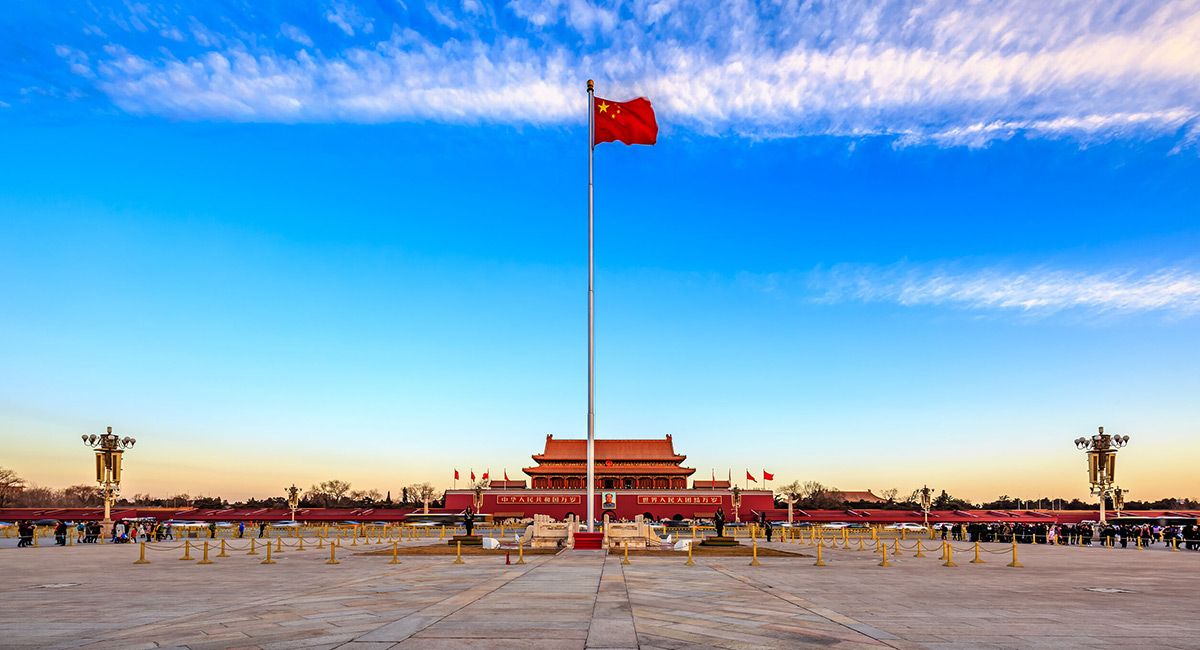“Today is the anniversary of China’s brutal crackdown in Tiananmen Square,” tweeted Joe Biden back in 2019. “Authorities tried to stop peaceful calls for political change with rifles & tanks. The courage of the Tiananmen generation hasn’t been silenced & still inspires the fight for freedom and justice worldwide.” And the former vice president wasn’t done.
“China’s continuing oppression of its own people, especially the abuse and internment of more than one million Uyghurs, is one of the worst human rights crises in the world today. It can’t be ignored. Human rights must be at the core—not periphery—of our engagement in the world.” Twitter followers had cause to wonder if the Delaware Democrat meant what he said.
“China is going to eat our lunch? Come on, man,” the former vice president said in May 2019, during an Iowa campaign rally. “I mean, you know, they’re not bad folks, folks. But guess what? They’re not competition for us.”
In a June 3, 2020 statement, Biden’s primary target was then President Donald Trump, accused of “sowing hate and division.” On Tiananmen Square, where China killed by some estimates more than 10,000 peaceful protesters, Biden called for “recommitting to the universal struggle for human dignity”—not quite the same as calling out China for brutal oppression and human rights violations. Those who wonder about Biden’s words might compare them with his actions.
In November 1989, less than six months after the Tiananmen massacre, Sen. Biden voted against strong sanctions on Communist China. In 1998, with the United States again poised to enact sanctions, Biden was part of a group of 10 senators opposed to the measures. “We are all for human rights,” the senators’ letter read, but human rights were to be achieved “through engagement.”
In May 2011, Biden said he believed that “protecting fundamental rights and freedoms such as those enshrined in China’s international commitments as well as in China’s own constitution is the best way to promote long term stability and prosperity—of any society.” The vice president didn’t specify the “fundamental rights and freedoms” in China’s constitution, and his statement offered no criticism of the Communist regime.
Biden’s approach of upholding human rights through “engagement” differs little from George H.W. Bush, president at the time of the Tiananmen massacre. Bush wanted a “measured response” and contended that “if people have commercial incentives, whether it’s China or in other totalitarian systems, the move towards democracy becomes inexorable.”
During the Great Leap Forward and Cultural Revolution, the Chinese Communist regime murdered more than 60 million people, according to “The Black Book of Communism: Crimes, Terror, Repression,” far surpassing the toll of Adolf Hitler and Joseph Stalin. After Tiananmen Square added to that toll, Sen. Dianne Feinstein sought to create a commission that would trace human rights in the United States and China and “point out the success and failures—both Tiananmen Square and Kent State.” For the Los Angeles Times, that was an “Invalid Equation.”
At Kent State in 1970, “badly trained National Guardsmen fired at and killed four anti-Vietnam War protesters. At Tiananmen Square in 1989, the regime used crushing force to kill hundreds who were peacefully challenging its claim to exercise total power over all of Chinese life.” According to the Times, “both incidents can be characterized as human rights abuses, but only in the sense that a fender scraped in a parking lot and a multi-fatality freeway crash are both auto accidents.” For the United States after Tiananmen Square, sanctions were not the only option.
The Bush administration could have demanded a full accounting of the mass murder, with punishment of those responsible. The United States and democratic allies could have demanded free multi-party elections, under international supervision, as a condition of improved relations. Instead, the United States brought China into the World Trade Organization in 1999.
In 2001, President George W. Bush signed a proclamation “granting permanent normal trading relations (PNTR) status to the People’s Republic of China ... the final step in normalizing U.S.-China trade relations and welcoming China into a global, rules-based trading system.” The agreement terminated the application to China of the Jackson-Vanik provisions, which had pressured the Soviet Union on human rights.
President Ronald Reagan called the USSR an “evil empire,” and challenged Soviet boss Mikhail Gorbachev to “tear down this wall.” No American president has thrown down with China in similar style. China remains a totalitarian Communist dictatorship, more repressive than it was in 1989, but enjoying privileged status in the United States.
Sen. Dianne Feinstein considers a Communist dictatorship the moral equal of the United States, a constitutional democracy. Joe Biden proclaims that the Chinese Communists are “not bad folks” and not even competition for the United States. Contrary to President George H.W. Bush, what might be “inexorable” is not China’s move toward democracy.
What might be inexorable is America’s move toward a one-party state, with the nation’s history and democratic tradition vilified, free speech under fire, dissent criminalized, and thousands of American troops deployed against the American people.








